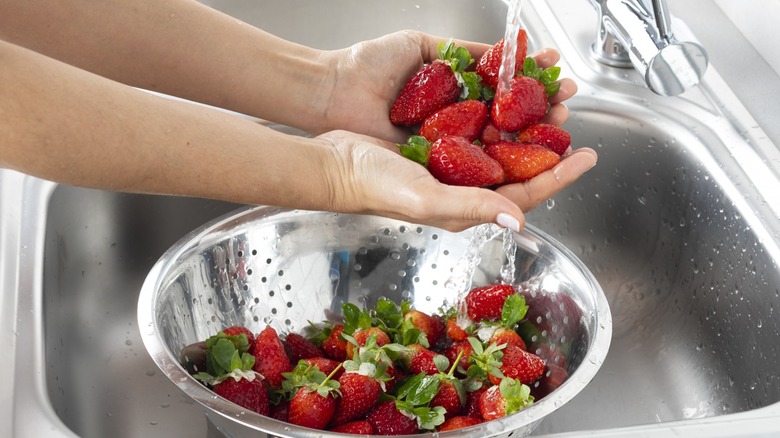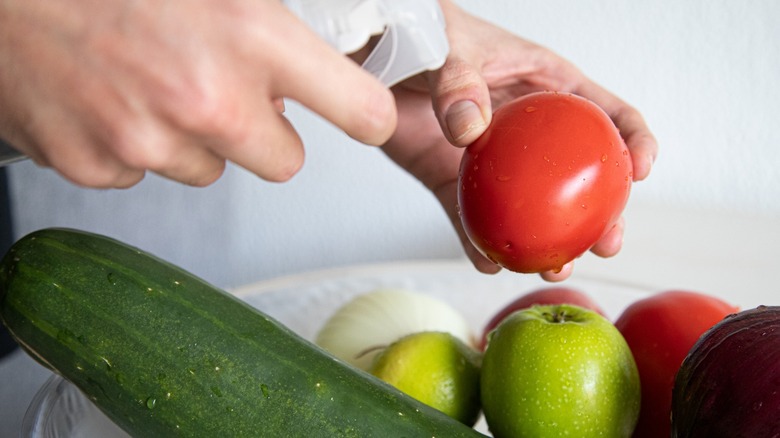Which Fruits Can Be Sprayed Clean And Which Need To Be Soaked?
How are you cleaning your fruit? If you answered, "I'm not," — it's definitely time to start. Even if you are, there's probably room for improvement. Thoroughly cleaning your fruits is very important, and the CDC recommends never skipping a rinse as salmonella, E. coli, and listeria bacteria may be present. The FDA cosigns this directive, noting that an estimated 48 million cases of foodborne illnesses claim the lives of 3,000 Americans and send 128,000 to the hospital each year.
Properly washing your fruit does more than just remove the odd bit of dirt or dust from the market. Produce is subjected to quite a bit as it's grown, harvested, possibly packaged, and transported to your local grocer. While many are processed and cleaned prior to getting to your cart, a little additional effort can go a long way to reducing the presence of residual pesticides, mold, and — as is common to see across social media channels — hidden critters.
Did you know some fruits should be sprayed clean while others should be soaked? While for dense fruits, a quick spray is generally sufficient, porous fruits that are easily penetrable by bugs and microbes will benefit better from a vinegar soak. To make your own rinse, simply combine one part distilled white vinegar (or apple cider vinegar) with three parts water. Whether you put that in a spray bottle or bowl will depend on the type of fruit you're washing.
How to clean your fruits with vinegar
While there are commercially sold fruit washes on the market, you can effectively clean your fruit with one of three simple ingredients (diluted with water): salt, baking soda, and vinegar. (Note — do not mix vinegar and baking soda as they will neutralize one another, rendering them both ineffective.) Vinegar is a wonderful choice for fruit as it has the added benefit of helping to prevent mold growth before it starts. So, which fruits should you spray with your vinegar wash, and which should you soak?
Spray works best with larger, smooth-skinned fruits like apples, pears, nectarines, plums, and limes. Just spray each piece of fruit on all sides and allow it to sit for five minutes, then rinse with plain water and allow to air dry before storing. Smaller fruits such as berries and textured-skin fruits like oranges, lemons, and avocados are best done with a vinegar soak. Simply make the solution in a bowl and allow the items to soak for about three minutes before draining. Then, hand dry, or for berries, allow them to air dry on a paper towel before storing. Use caution, though, as improperly dried fruits can lead to bacterial growth, so you shouldn't wash your vegetation too soon, doing it instead just before use. Although it may sound like extra work, keeping yourself and your family safe is worth the effort.

